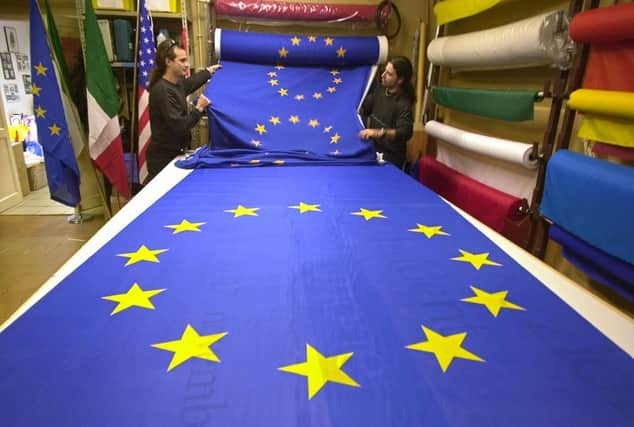Leaders: Labour’s quandary is one shared by all


The first was an acceptance of political reality – Labour could hardly defend a position that the UK electorate should be denied a vote on this issue – but the second may prove more problematic. There are many Labour voters keen to see reform that would limit immigration. And while attention has long been focused on Tory Euro sceptics, there are sceptics, too, within the Labour ranks. Leftist parties in continental Europe are far from uncritical of the way in which the drive to “ever closer union” has resulted in painful austerity for many eurozone economies.
Organisations representing leading businesses in the UK are already urging an early resolution to avoid a long period of uncertainty. That is certainly a desirable aim and may be particularly appreciated in Scotland after a two-year campaign on the independence referendum. But the issues at stake, ranging from immigration policy through greater member flexibility on “ever closer union” to curbs on EU business and labour market regulation are necessarily complex and will involve detailed discussion and compromise before David Cameron can put a credible package before voters. Limiting the rights of EU migrants to claim tax credits is one such issue. EU migrants could currently receive £700 per month in tax credits, twice what they would receive in Germany. That, said Business Secretary Sajid Javid yesterday, “is a very key part of our negotiation”.
Advertisement
Hide AdAdvertisement
Hide AdAlready there is speculation that the EU referendum may be held on the same date as that for elections to the Holyrood parliament. While that has the benefit of administrative convenience – and should help towards a higher turn-out – many will object that the concerns of one will overshadow and crowd out the other. The determining issue, however, is likely to be practicality – and it may not be until later in 2016 that the government will be able to put the result before voters. With France and Germany reluctant to make significant concessions that may open the door to renegotiation for other member states, timing here is not totally in the government’s gift to determine.
The likelihood is that with all major parties campaigning to stay in, the referendum result will be a foregone conclusion. But as Scotland well knows, even an emphatic referendum result does not necessarily mean a resolution of the issue. Who dares to say even a “55-45” vote to stay in puts the matter to bed?
Beware the sound of boots on the ground
With almost every day we hear of fresh advances and atrocities by Islamic State fanatics. Opponents are ruthlessly butchered while precious historical relics are destroyed.
Little wonder that the ex-head of the army, General Lord Dannatt, has suggested 5,000 UK soldiers could be sent to fight IS and halt its bloodthirsty advance.
Many will agree and share his scepticism over coalition bombing raids, which have failed to stop the extremists. But we have been here before. Hundreds of British lives were lost in the 2003 US-led invasion of Iraq – it may have toppled the Iraq regime but it signally failed to staunch the civil war and put an end to the conflict. And it triggered deep and widespread opposition in Britain to any further military incursions in the Middle East.
Appalling though the advance of IS may be, and the misery it is inflicting on hundreds of thousands of displaced and terrified refugees, opinion here is still deeply sceptical of putting British boots on the ground. The dangers of being sucked into an ever-wider conflagration with adverse consequences for UK peace-making efforts in the Middle East are real and obvious.
That said, we are not totally helpless. There is much the UK can do in supplying military material to those fighting IS and in providing support for refugees. But, for all its geo-political ramifications this is a conflict that those directly involved in the Middle East must resolve.
There is much we can do to relieve suffering. But boots on the ground remains an unthinkable option.